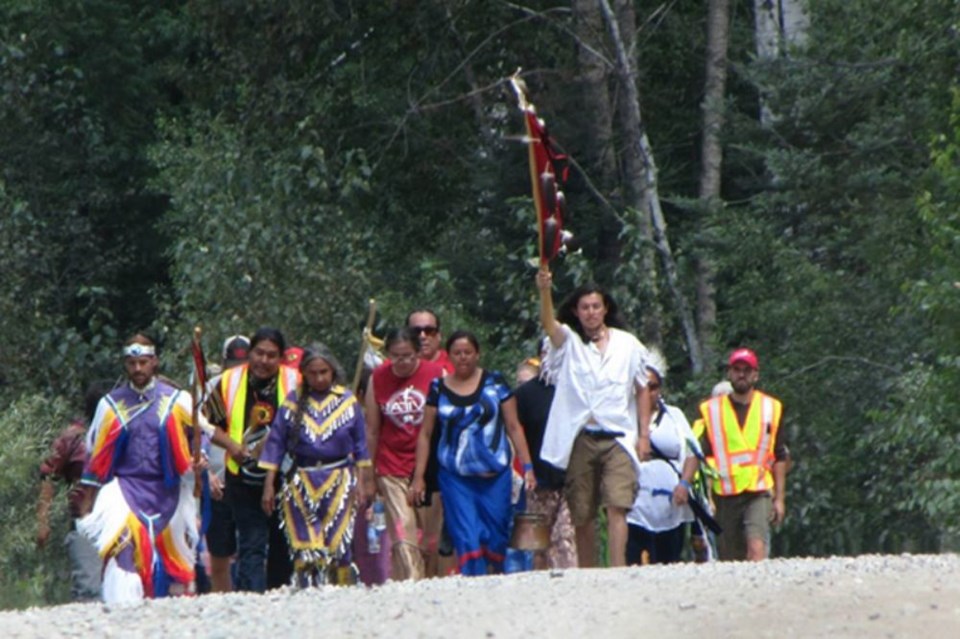ISKATEWIZAAGEGAN FIRST NATION -- Treaty 3 members who walked along the Energy East Pipeline between Eagle Lake and Shoal Lake this week say the action is only the first step.
The walk was protesting TransCanada's intention of converting the natural gas pipeline to carry bitumen from Alberta to ports in Quebec and the Maritimes.
Over the course of the week-long walk, Nearly 40 people from over a dozen of Treaty 3 communities participated in the 125-kilometre trek, including Naongashing First Nation (Big Island) Chief Patricia Big George and Iskatewizaagegan First Nation (Shoal Lake 39) Chief Fawn Wapioke.
Wapioke spoke of the youth's bravery when the walk ended in her community on Sunday.
“Our Anishinaabe laws and values tell us everything we need to know about Energy East; that is why we say no,” she said.
“The bravery and the strength of our young people, elders, men and women in collectively opposing the proposed Energy East project is admirable. The walk has created awareness, unity, and a stronger connection to one another as well as to the lands, waters, and to our responsibilities as the Anishinaabeg who are indigenous to this territory.”
Becca Mandamin, a community organizer from Iskatewizaagegan, suggested that the fight against the pipeline is just at its early stages.
“It is important to walk against the pipeline, but we should also be openly opposing it in other methods as well,” she says.
"Then you help shift the social norm and allow people to step outside of the paradigm the Energy East is going to help sustain and benefit our economies. Energy East is really only going to be benefiting the non-Indigenous economies because if there is an oil spill, it happens in our lands; then our chance to use the natural resources which have great economic value, will be gone.”
Alexa Lesperance is a youth facilitator from Naotkamegwanning First Nation (Whitefish Bay). She called the walk an extension of the rite of passage for the young people who participated.
"Most people here are parents and have their children here,” she said. “The Water Walk is a rite of passage because you are modelling for young people what it is like to defend the land.”
